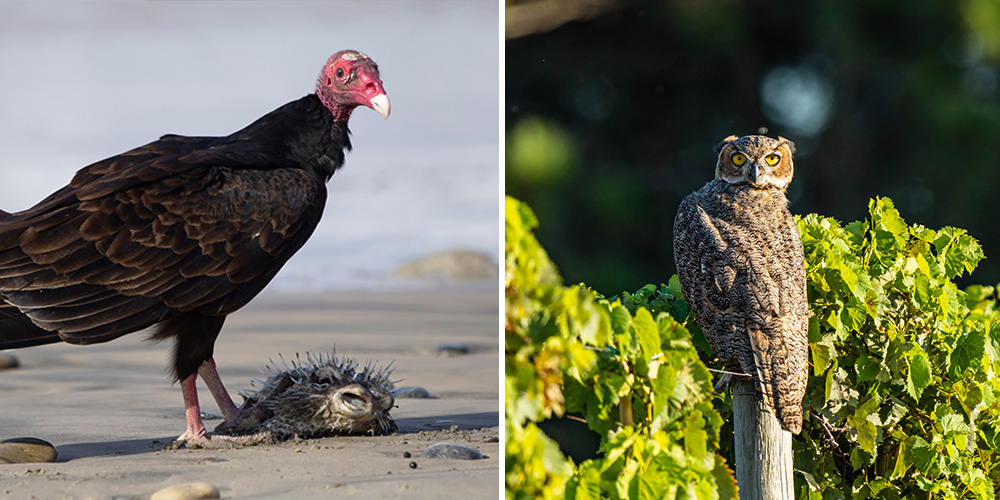Raptors are awe-inspiring hunters, essential to the health and balance of our ecosystems and the communities that depend on them. As apex predators, they keep vermin populations in check, prevent crop damage, and reduce the spread of disease by consuming carrion.
Raptors as One Health Sentinels
Because they live at the top of the food chain, raptors are especially vulnerable to toxins and environmental disruption. Lead exposure, rodenticide poisoning, habitat loss, and vehicle collisions threaten their survival.
Monitoring these birds provides critical early warnings about environmental hazards that also affect humans, agriculture, and other wildlife.
Protecting raptors means protecting ourselves.

Saving Raptors, Protecting the Future
Each year, the California Raptor Center (CRC) at the UC Davis One Health Institute, in partnership with the UC Davis Veterinary Medical Teaching Hospital, provides lifesaving care for 100 to 200 sick, injured, and orphaned raptors. Thanks to expert medical care and daily rehabilitation, about 60% of these patients are released back into the wild (not including deaths within 24 hours of intake).
Our work doesn’t stop there. Raptors who cannot survive in the wild, because of their injuries or from imprinting, become lifelong education ambassadors at the CRC, helping to educate thousands of visitors, students, and future conservation leaders.
Why Your Support Matters
The CRC is powered by dedicated staff, volunteers, and generous supporters like you. Your gift directly funds:
Food, medicine, and supplies for raptor patients
Additional staffing to improve rehabilitative care, coordinate volunteers, and expand education programs
Veterinary services and advanced medical treatment
Updated enclosures for both resident and rehabilitating birds
With more resources, we can rescue more birds, expand our outreach, and deepen our impact on wildlife and human communities.
By protecting birds of prey, we protect our ecosystems, our communities, and our future.

